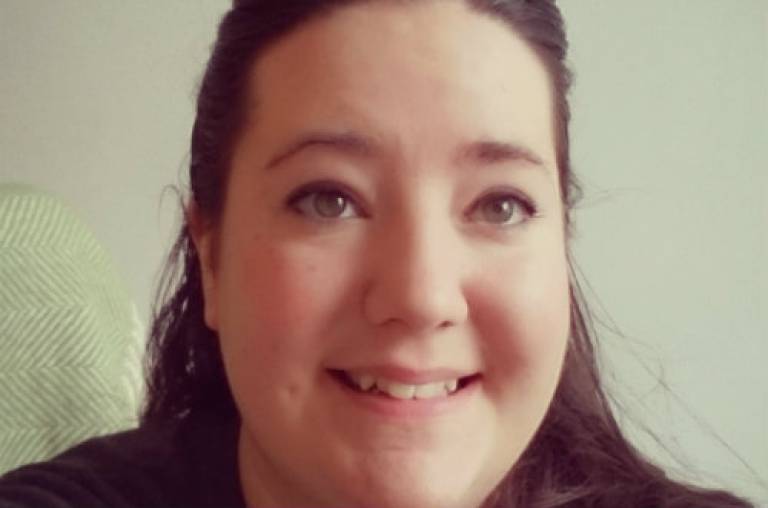Q&A with Rebecca Allen
13 November 2015

Rebecca Allen is the Student Experience Data Manager in UCL’s Office of the Vice-Provost (Education & Student Affairs). Responsible for collating student survey data, she shares an insight in to student feedback.
What are you working on at the moment?
We are currently promoting the autumn 2015 wave of the Student Barometer survey which launched on Monday 2 November and is running for four weeks. We need departmental staff to encourage all their students to take the survey. Student feedback is vital to UCL’s success; responses provide key information about where we need to focus our resources, and we’re now putting processes in place to ensure we make best use of this information.
We are also going through the Annual Student Experience Review process with departments after the release of this year’s National Student Survey results. The focus this year is on tackling assessment and feedback – responses in this area are not where we would like them to be so we are working with departments, and the Provost, to begin discussions on how to can change this.
What advice would you give to someone looking to develop the way they teach?
Although I don’t teach, student responses – particularly negative ones – do tend to highlight certain themes. Many of them centre on a feeling of isolation within UCL and not feeling particularly connected with their teachers. Conversely, those with high satisfaction rates often have many positive comments praising a ‘community feel’ in their departments, as well as good relationships with staff.
It’s clear that this is an important part of many of our students’ happiness. Creating an atmosphere where students feel comfortable talking to the teaching academic or even their peers is an important part of their student experience. It’s also worth being mindful of different learning styles when you’re attempting to engage students.
How do you expect higher education to change in the next five years?
I expect that with the introduction of the Teaching Excellence Framework (TEF), there will be an increased emphasis on teaching satisfaction and the student experience. I think the introduction of higher fees has moved the focus for universities on to students, who quite rightly expect high standards of teaching in return for the fees that they are paying.
I also think we will see some institutions solving the issues that have dogged the sector for a long time, such as poor satisfaction around assessment and feedback, and the idea of an outstanding student experience, and this will no doubt reflect in league tables which will become ever more important. The effect will be that research may not be the primary focus for prestige.
What piece of technology do you find invaluable in your teaching?
Again, I don’t teach students directly but a significant number of responses in our student surveys point towards the usefulness of Lecturecast – online recordings of lectures – and how they would benefit from all lectures being available in this way so that revision and re-learning can be done independently. It would make sense – there is no evidence that putting lectures online reduces attendance, and do take some of the pressure off the lecturer.
What achievement are you most proud of?
I would say that my proudest achievement recently has been introducing a new visual identity for student surveys within UCL. We wanted to create a really original, recognisable brand with which to promote the surveys and achieve better engagement from the students, so we worked with an agency called JWA to create this great ‘still life’ concept. I particularly like it because the idea originated from a student focus group that JWA ran at the start of the process. It taps into the idea that our students all have items that represent their experience here, and that these day-to-day things are part of what creates an amazing education at UCL. You can see the finished concept on our newly launched webpage: www.ucl.ac.uk/studentsurveys
Dr Mina Sotiriou asks: “How would you Connect the Curriculum in your area of work?”
This is tricky as I’m not directly involved in either teaching or academic research, but I’ve found that when we’ve engaged with students before (mainly through focus groups and creative sessions) the results are genuinely enriched by working together in partnership. So I’d definitely like to do more of that; bringing students’ ideas and energy into our processes and getting more student reps involved in committees and working groups.
What question would you like to pose to the next interviewee?
“How do you ensure that students within your department or area feel engaged in the UCL community?”
 Close
Close

